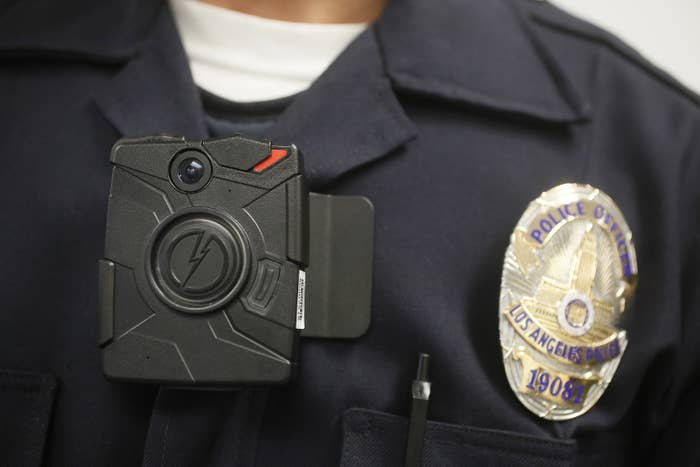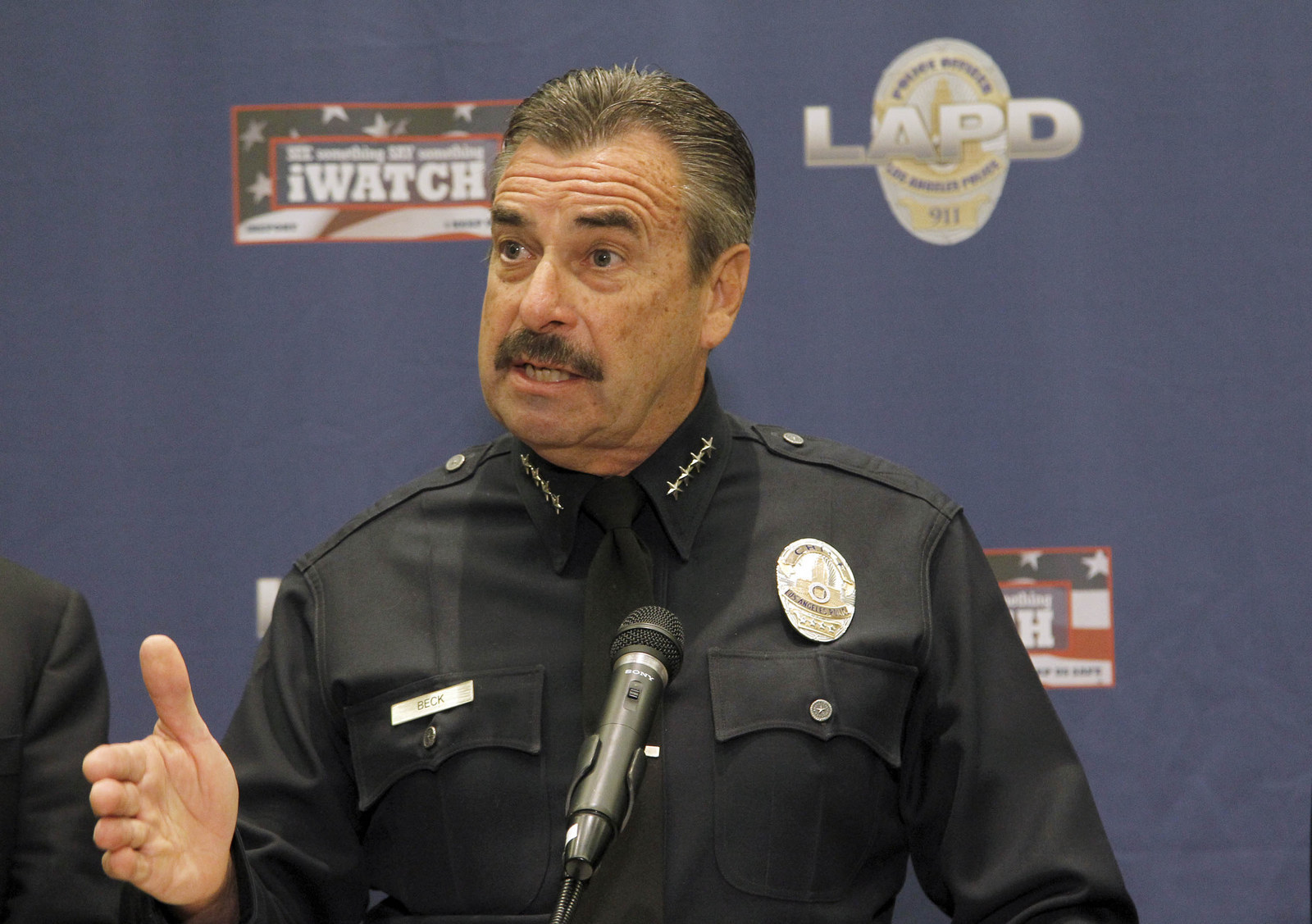
The Los Angeles Police Department moved closer Tuesday to becoming the nation's largest law enforcement agency to deploy body cameras, adopting a set of guidelines for officers to follow.
But the American Civil Liberties Union cited deep concerns with some of the adopted policies, including allowing officers to review body camera footage before writing reports, and barring footage from being publicly released.
The Los Angeles Police Foundation agreed to pay for the department to deploy 800 body cameras, and the city's proposed budget for 2015-16 includes funding for about 4,500 cameras on the streets.
They include rules as to when the cameras must be turned on, when officers can opt to keep them off, training, and bans officers from modifying the video.
"But the proposed policy will likely do more harm than good, fueling suspicion that cameras are being used solely to benefit officers."
"If implemented property, (body cameras) could build trust between police and the public," said Hector Villagra, executive director of the ACLU in a statement to BuzzFeed News. "But the proposed policy will likely do more harm than good, fueling suspicion that cameras are being used solely to benefit officers."
Amongst its chief concerns is allowing officers to view the video before writing reports, including in incidents that involve use of force.
"This is a critical flaw that seriously undercuts the accountability and investigative accuracy that body worn video should advance," read a letter from Peter Bibring, an attorney with the ACLU, to the police commission. "Not only is this a poor investigative practice, but such one-sided policy of allowing officers, but not members of the public, to see video before being interviewed will undercut the legitimacy of any investigation for which video is involved."
The ACLU also criticized the policy for barring video camera footage from being released, or "leaked" to the public.

During Tuesday's meeting, Chief Charlie Beck said he would consider releasing video in some instances, but would not in the vast majority of requests because he considered the video exempt as evidence, according to the Los Angeles Times.
"That is not to say that I will never do it," he said during the meeting.
Police departments and cities across the U.S. have introduced the cameras to promote transparency and rebuild trust after several high-profile incidents of use of force in the country.
However, civil liberty groups have aired concerns that policies being adopted, and laws being considered across the country, would limit public access to the footage.
BuzzFeed News found 31 states in the country are considering laws that would affect police body cameras, including 20 states considering laws to keep the footage out of public sight.
The Los Angeles Police Protective League, the labor union that represents officers in the force, supports the policy adopted Tuesday, calling it fair and reasonable.
"We are confident that the policy as drafted balances everyone's rights and interests - the officers, the Department, the City and the community - and believe that body worn cameras will help promote accountability, accuracy and assistance the continued effort to strengthen the community's trust," according to a statement released by the union.
